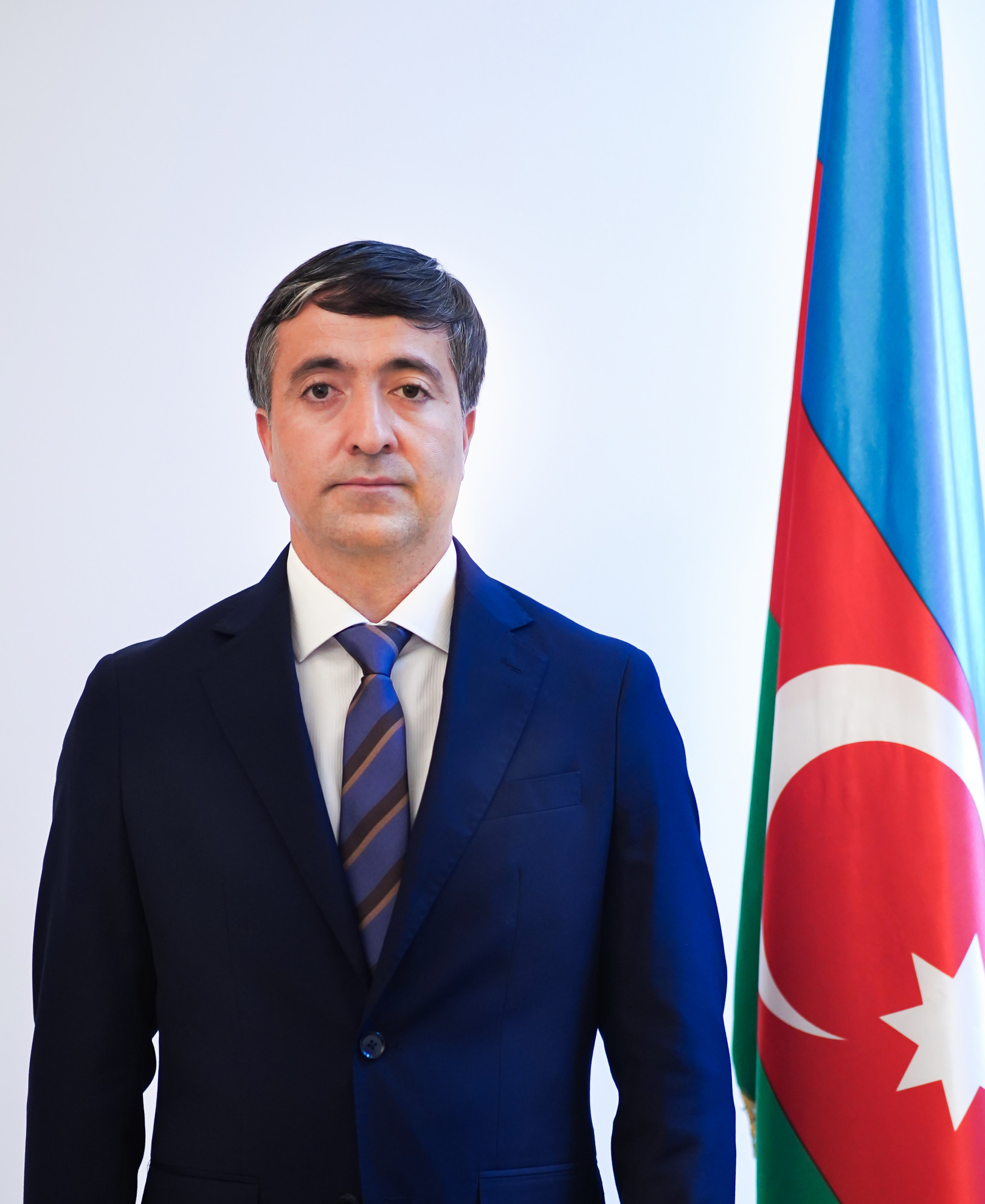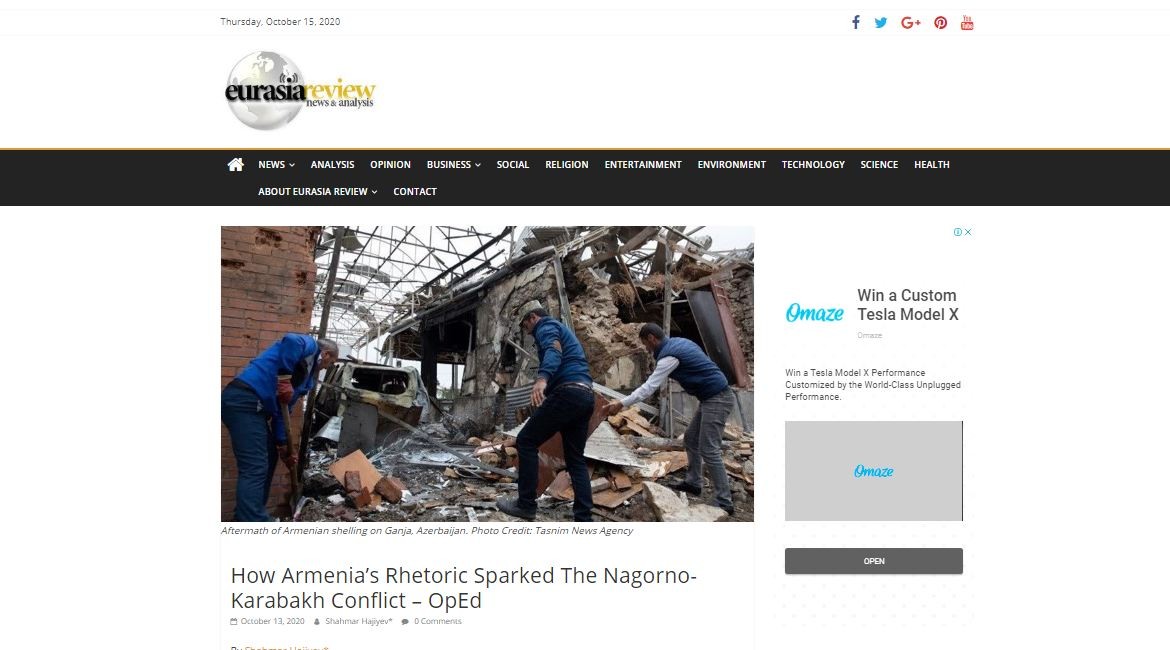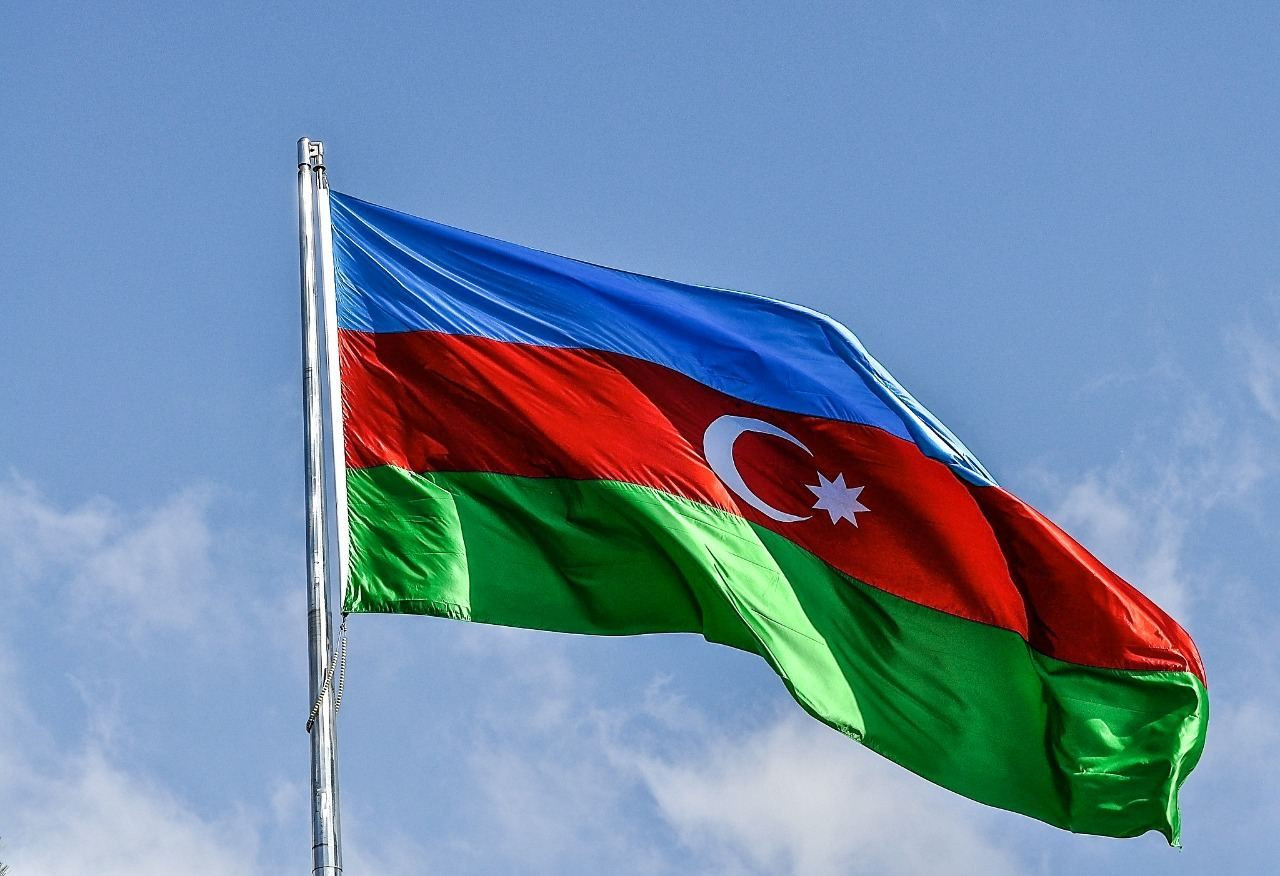The recent Nagorno-Karabakh war and COVID-19 are a major threat to human and regional security in the region. Diplomatic talks mediated by the countries of the Co-Chairs of the OSCE Minsk Group have proposed several “mechanisms” to resolve the conflict, including the “Madrid Principles” proposed in 2007, but unfortunately, the war continues to cause either directly or indirectly the massive loss of human life.
There was an optimism to move forward after the government change in Armenia in 2018, as it was clear that the ceasefire is fragile, and any escalation may turn to full scale military operations.The new Armenian military doctrine “new war for new territories”, declared by the Armenian Minister of Defense David Tonoyan in March 2019, was clearly not aimed to mitigate tension and achieve peace . In addition, illegal settlements of the Lebanese-Armenians from the Middle East in the occupied territories are against international law. Armenia’s new High Commissioner of Diaspora, Affairs Zareh Sinanyan noted that “Until now 800 Lebanese-Armenians have arrived in Armenia, some of them came before the Beirut explosion but after July 1st, when the first plane landed in Yerevan, with the rest arriving after the August 4th explosion”.
The tension between the conflicting sides became even worse when Armenian PM called into question the “Madrid Principles”, as he confirmed again the unwillingness of Armenia for peace. Nikol Pashinyan has disrupted peace talks by publicly raising doubts about the current framework of negotiations. After such developments, pro-war rhetoric became actual, and it stimulated escalation. After Tovuz escalation on the Armenian-Azerbaijani border on July 12, another large-scale military attack happened on September 27, 2020. This escalation was the biggest and the most serious one since the 1990s.
The September war was very different from the previous escalations as Armenia and Azerbaijan used different military tactics on the battlefield. While Armenia used mainly Russian weapons such as the BM-30 Smerch, “Tochka-U” high-precision tactical missile system, a Scud missile and other weapons. Along with Russian weapons, Azerbaijan, used modern UAVs against Armenian forces. It is worth noting that Azerbaijani army mainly used the Israili Harop and the Turkish Bayraktar TB2 drones. The tactics of the Azerbaijani army were so effective on the battlefield that Armenian army suffered heavy losses in personnel and military equipment. After defeat and the loss of positions, Armenian forces started to bomb the Azerbaijani cities far from the frontlines.
It was very obvious that Armenia would use all means against Azerbaijan in order to stop Azerbaijani military operations. On October 4 Armenia launched missile attack on Azerbaijan’s Mingachevir electricity plant. Mingachevir is the biggest water reservoir, and its damage may cause an ecological problems and death of many civilians.
It should be specifically underlined the Ganja city, because the city is the second biggest and located around 60 km away from the frontline. The bombardment of Ganja was ordered by the head of the occupational regime Arayik Harutyunyan. Despite a cease-fire reached in Moscow between conflicting sides, during the early hours of Sunday October 11 Armenian forces attacked Ganja using the Tochka-U tactical missile. As a result of the attack, at least nine civilians, including four women, were killed and 34 injured. It should be noted that between September 27 until October 11, 41 Azerbaijani civilians have been killed and 205 injured.
Ganja lays also in a very strategic region since Caspian oil and gas resources are being supplied to international energy markets via the “Ganja Gap”. Towards this end, the Armenian MP Arman Babajanyan has already supported the idea that “the Armenian armed forces must continue to target Azerbaijan’s multimillion-dollar Western projects, infrastructure, gas pipelines and oil pipelines in their attacks. This is already a first-class issue”. Earlier on October 6, 2020 Armenian forces fired cluster rocket to BTC oil pipeline. The attack happened in Yevlakh region of Azerbaijan, and the rocket landed 10 meters away from BTC pipeline. As a result, more than 300 cluster bombs were ejected around. The BTC pipeline exports Caspian oil to Europe bypassing Russia via Georgia and Turkey. This important inter-regional project from geopolitical point of view. This pipeline contributed to economic, political as well as energy security of all involved parties. For Azerbaijan the BTC is very important as it opened the new era for the country’s development as well as strengthening relations with important states such as Israel. Armenian is protesting against Israeli-Azerbaijani close cooperation, but it is fact that Azerbaijani-Israeli energy cooperation has become vital for Israel’s energy security. Azerbaijan supplies about 40–45 percent of Israel’s oil demand via the BTC pipeline.
Armenian bombardment also threatened natural gas projects. Azerbaijan successfully implemented SGC project to supply Caspian gas to Europe. The European leg of the SGC TAP pipeline 98% completed. Any attack can not prevent Azerbaijan to export gas to European energy market. Today, Azerbaijan is an important energy player in the region, and the country supports the energy security of Europe.
In brief, despite the ceasefire agreement from Saturday 12 p.m. local time on October 10, following 13 days of the war, violation of the ceasefire continued. Ganja attack, which happened at 2 a.m. the next day of the ceasefire and all previous cases showed that the ceasefire is very fragile, and there is always a high-risk of escalation into a direct large-scale war. Now the “status-quo” has changed, there is no contact line any more, and the international community understands that frozen conflict is a serious danger for security of the region. Azerbaijan is a reliable energy partner in the Caspian region for the West, therefore the country expects true peace and stability, which can be achieved only on the basis of the “Madrid Principles”. Armenian and Azerbaijani people have suffered from this long-lasting conflict, and the sooner resolution of the conflict will only save innocent lives from both countries and strengthen regional security and prosperity.








